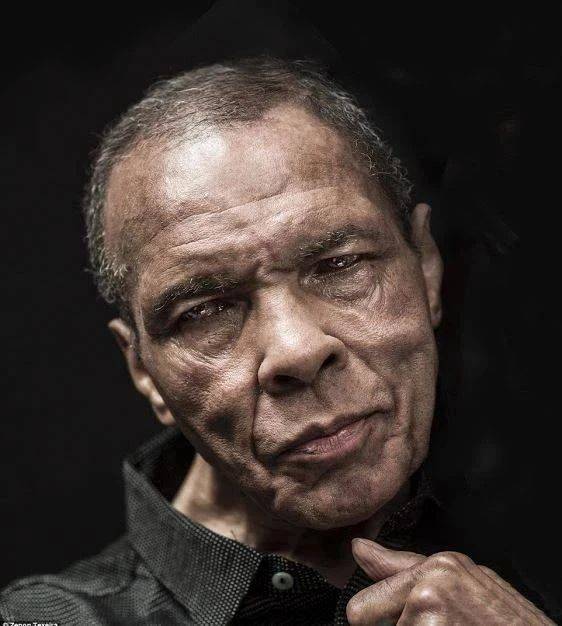The last photo of Muhammad Ali, 2016
Born Cassius Clay, Ali is considered the most important athlete of the 20th century by many professionals and critics.
Known as "The Greatest," Ali would use boxing as his platform to advocate for civil rights and humanitarian issues and as a form of self-expression.
Despite being considered the best boxer of all time, Ali dealt with racism and discrimination his entire life. Here is a story about Ali that shows his dedication to his beliefs:
Ali had won a gold medal at the 1960 Olympics boxing tournament at just 18 years old.
He returned to his hometown of Louisville, Kentucky, where he was referred to with slurs by local newspapers.
Proud of his accomplishments, Ali went out one night to celebrate his victory while wearing his gold medal.
Upon entering a diner, Ali was refused service.
Enraged that the waitress would only recognize him for the color of his skin and not his character, Ali threw his medal into the Ohio River off a bridge. He did this as he felt that no matter what he achieved, he would never be judged for his character but for his physical features.
Ali had an incredible career, with 56 wins (37 knockouts) and 5 losses. Towards the end of his career, Ali showed signs of Parkinson's disease, which caused him to retire.
Ali was known for his unique boxing style, which consisted of movements such as the "Ali shuffle," which gave the impression that he was dancing.
He was not credited as a heavy hitter, but he was known for his dodging and agile abilities, which allowed him to dodge attacks to tire out his opponents, allowing Ali to be more aggressive.
Ali would go on to inspire millions of people around the world with his poetic commentary, wishful thinking, and generous attitude.
Photographer: Zenon Texeira
Read also;
On June 20, 1967, boxing legend Muhammad Ali was convicted for refusing the draft for the Vietnam War in Houston, Texas. Ali had been a vocal opponent of the US war, expressing his views by saying, "Why should they ask me to put on a uniform and go 10,000 miles from home and drop bombs and bullets on brown people in Vietnam while so-called Negro people in Louisville are treated like dogs?"
In an attempt to suppress the growing resistance to the war, Ali was given a maximum sentence of five years imprisonment and a $10,000 fine.
However, these efforts proved unsuccessful as the anti-war movement continued to gain momentum. Despite the Nation of Islam starting to distance themselves from Ali, demonstrations in support of him took place worldwide, from Egypt to Guyana, and London to Ghana. Four years later, the Supreme Court overturned his conviction.
Ali remained steadfast in his convictions, stating, "I wasn't trying to be a leader. I just wanted to be free. And I made a stand all people, not just Black people, should have thought about making because it wasn't just Black people being drafted.
The government had a system where the rich man's son went to college, and the poor man's son went to war. Then, after the rich man's son got out of college, he did other things to keep him out of the Army until he was too old to be drafted."


